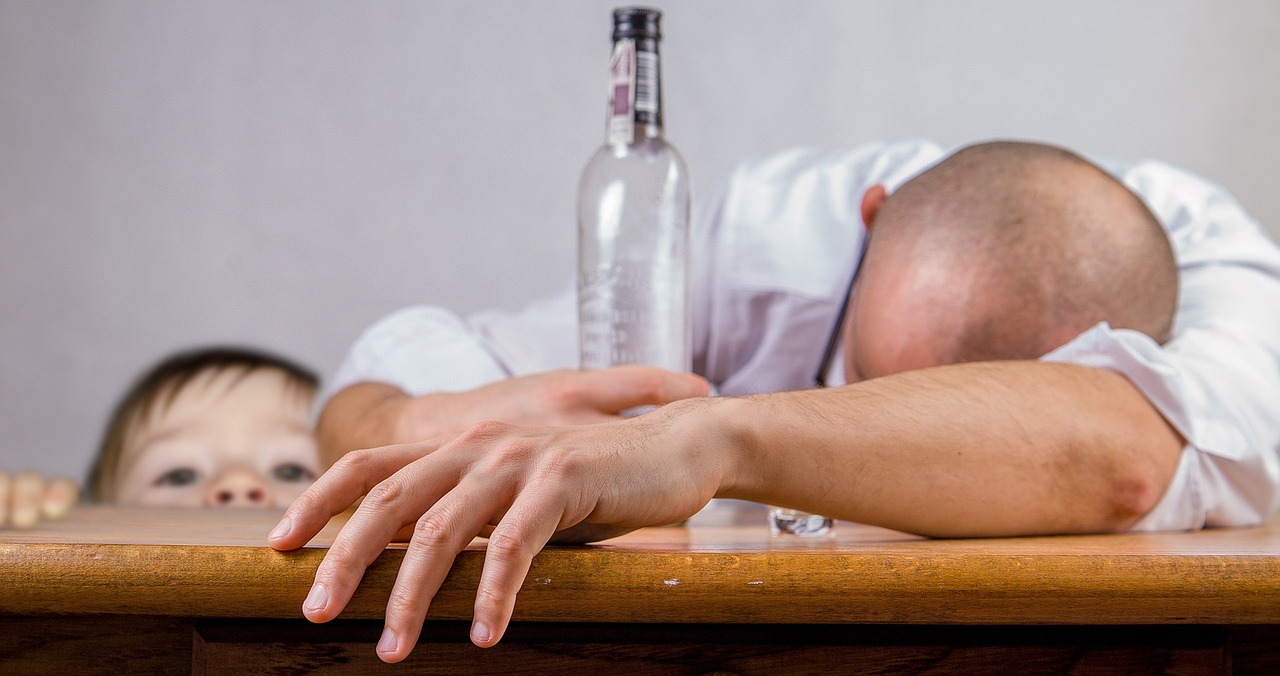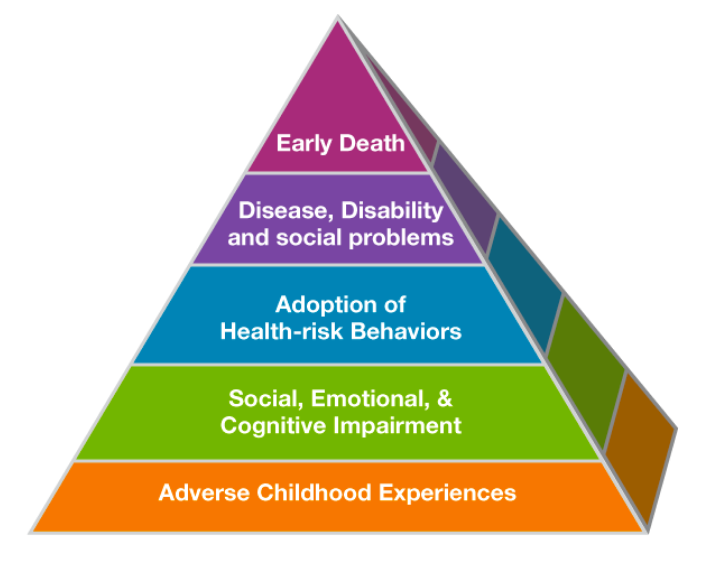Felitti et al (1998)
 An important part of modern health, abnormal and developmental psychology is the effect of stress on adult behaviours. in 1998 Felitti et al published what has become known as the Adverse Childhood Experiences study. The study showed that these negative experiences and stressors in childhood can have long-term effects on health - both mental and physical, as well as on cognitive and social development.
An important part of modern health, abnormal and developmental psychology is the effect of stress on adult behaviours. in 1998 Felitti et al published what has become known as the Adverse Childhood Experiences study. The study showed that these negative experiences and stressors in childhood can have long-term effects on health - both mental and physical, as well as on cognitive and social development.
Sigmund Freud argued that our childhood experiences can have an effect on our personality development as well as our mental health. His argument was that repressed childhood experiences and the inability to resolve conflicts from our childhood lead to anxiety.
Modern research has shown that there is some sense to Freud's argument, even though the reason for why childhood experiences influence adult behaviour may be different than he originally proposed.
In the 1990s Kaiser Permanente sponsored a study that has become known as the ACE study - the Adverse Childhood Experiences study. The goal of the study was to determine if there was a correlation been negative childhood experiences and adult physical and mental health.
Adverse childhood experiences are common. For example, 10.8% of the study's participants reported physical abuse and 22% reported sexual abuse. Many also reported experiencing a divorce or parental separation or having a parent with a mental (12.5%) and/or substance use disorder(25.6%).
In addition, adverse childhood experiences often occur together. Almost 40% of the original sample reported two or more ACE's and 6.2% experienced four or more. Because ACEs occur in clusters, many subsequent studies have examined the cumulative effects of ACEs rather than the individual effects of each.
The following video has a description of the study, explained by Nadine Burke Harris.
This study is a correlational study. The sample consisted of 8506 participants - mean age of 56.1 years - with a range of 19 - 92 years old. 43% had graduated with a university degree - and 52.1% were women.
A questionnaire was sent to people who had completed a standardized medical evaluation at the Kaiser Permanente clinic in San Diego. The questionnaires focused on seven adverse childhood experiences: physical, psychological or sexual abuse, domestic violence against the mother, living with a caregiver that was suicidal, a substance abuser, or had been imprisoned. These seven ACEs were correlated with the health status determined in the clinical evaluation.
The researchers found that the prevalence and risk increased for smoking, severe obesity, physical inactivity, depression, alcoholism, use of illicit drugs, promiscuity, and suicide attempts as the number of ACEs increased. The researchers also found a strong relationship between the number of childhood experiences and health risk factors.
Adverse childhood experiences have a dose-response relationship with many health problems. The researchers also found that there was a strong correlation between the number of ACEs and ischemic heart disease, cancer, chronic bronchitis and hepatitis (linked to sexual and drug behaviours).
Persons who had experienced four or more categories of ACE, compared to those who had experienced none, had a 12-fold increased health risk for alcoholism, drug abuse, depression, and suicide; a 2 to 4-fold increase in smoking, sexually transmitted diseases; and a 1.4 to 1.6 fold increase in physical inactivity and severe obesity.
Prevalence rates of health issues correlated with the number of ACE's
| No ACE | 1 ACE | 2 ACE's | 3 ACE's | 4+ ACE's | |
| Ischemic heart disease | 3.7 | 3.5 | 3.4 | 4.6 | 5.6 |
| Chronic bronchitis | 2.8 | 4.4 | 4.4 | 5.7 | 8.7 |
| Fair or poor self-rated health | 16.3 | 17.8 | 19.9 | 20.3 | 28.7 |
| Hepatitis | 5.3 | 5.3 | 7.7 | 10.2 | 10.7 |
 For more information about the Adverse Childhood Experience study, see this link to the CDC website.
For more information about the Adverse Childhood Experience study, see this link to the CDC website.
This study was a pioneer in the study of the role of adverse childhood experiences on adult health. It had a large sample size and sparked a lot of research that has confirmed and developed the original findings.
It is unclear how the different ACEs interact and contribute to the onset of health problems. It is also not clear whether it is the presence of an ACE in childhood or the intensity, frequency, or nature of the ACE that impacts adult health. As no extraneous variables were controlled for, more research is needed.
The study did not focus on the mechanisms that may lead to health issues - for example, cortisol levels were not measured.
The data was self-reported and retrospective. However, the rates of abuse were in line with other studies of similar populations.
The study is cross-sectional. We do not see changes in health over time.
There is a low number of older participants; it is possible that the elderly participants had simply outlived other older participants who had health issues, making this part of the sample unrepresentative.

 IB Docs (2) Team
IB Docs (2) Team
